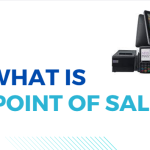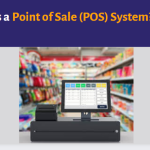POS stands for “Point of Sale.”
Point of Sale (POS) refers to the physical location where a transaction is completed between a merchant and a customer. It can also refer to the software and hardware used to facilitate this transaction. Here are some key points about POS systems:
- Transaction Processing: At the point of sale, transactions are processed. This involves scanning or entering product information, calculating the total amount due, and accepting payment from the customer.
- Payment Methods: POS systems support various payment methods, including cash, credit/debit cards, mobile payments, and electronic wallets.
- Inventory Management: Many POS systems integrate with inventory management software to track stock levels in real-time. This helps businesses optimize inventory levels, prevent stockouts, and streamline reordering processes.
- Reporting and Analytics: POS systems generate reports on sales, inventory, and other key metrics. These reports provide insights into business performance and help in making informed decisions.
- Customer Relationship Management (CRM): Some POS systems include CRM features, allowing businesses to track customer information, purchase history, and preferences. This enables personalized marketing campaigns and improves customer service.
- Integration: POS systems often integrate with other business software, such as accounting software, e-commerce platforms, and marketing tools, to streamline operations and data management.
- Hardware: POS hardware typically includes a cash register, barcode scanner, receipt printer, and payment terminal. Modern POS systems may also include tablets or touchscreen monitors for easier use.
Overall, POS systems are essential tools for businesses in retail, hospitality, and other industries where transactions occur. They help streamline operations, improve efficiency, and enhance the customer experience.



